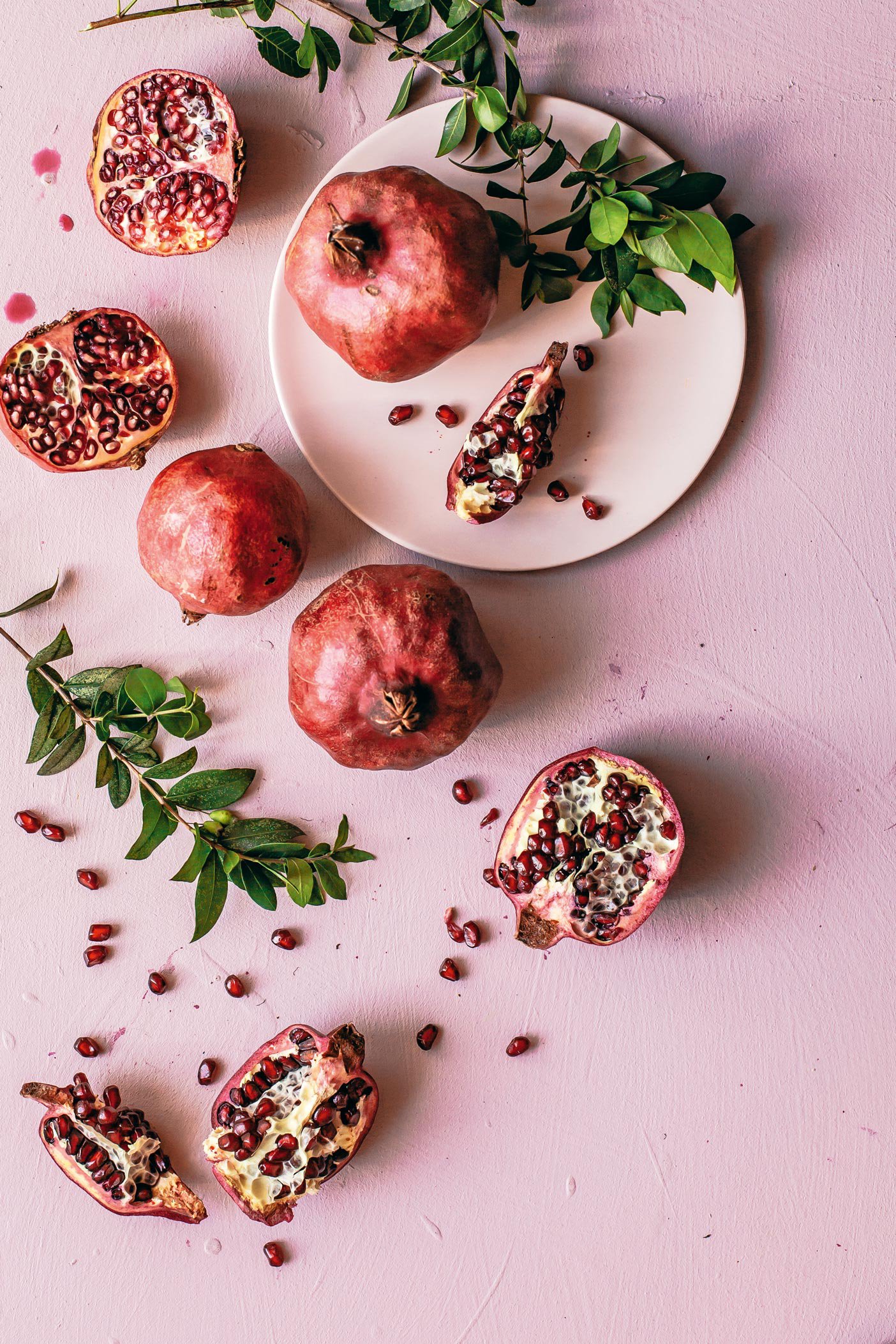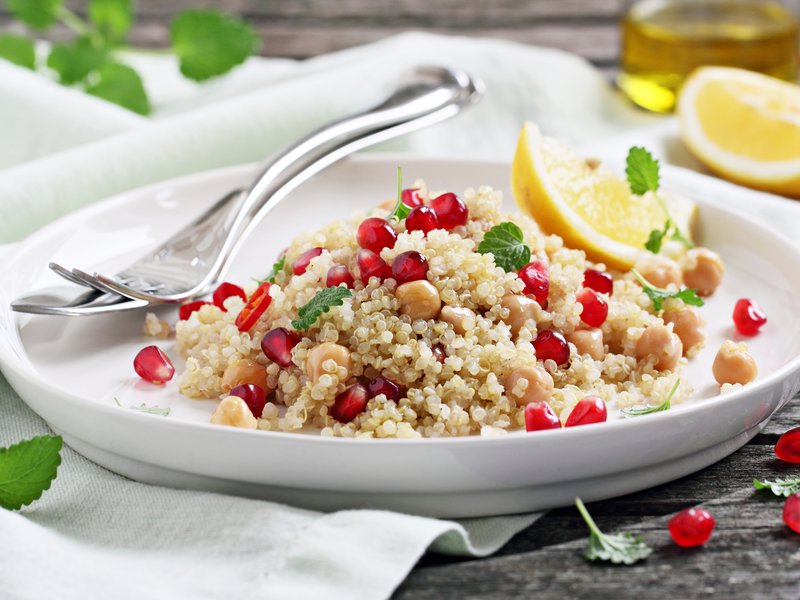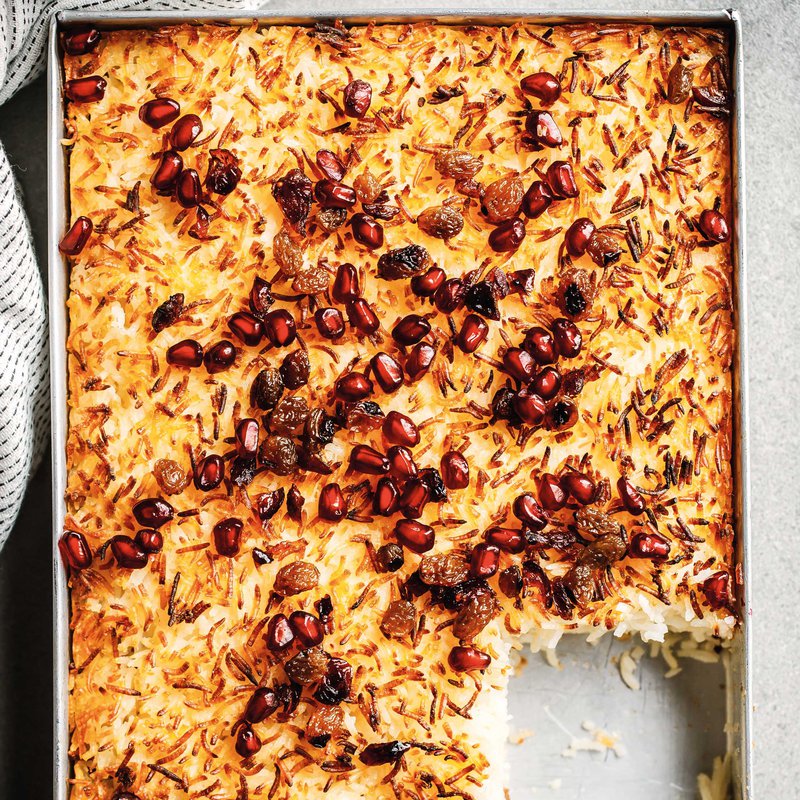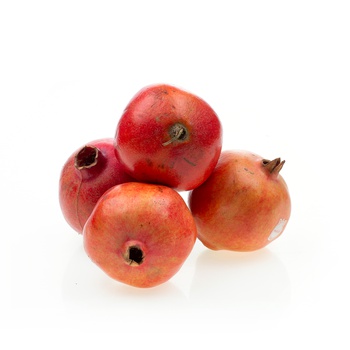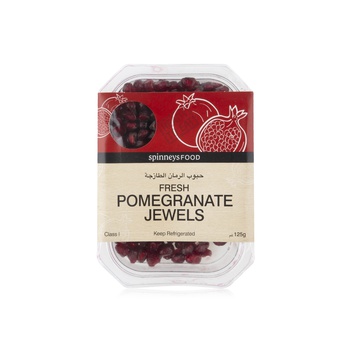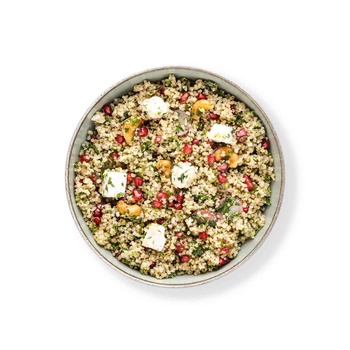Botanically a berry, this delicious fruit has long been valued for its medicinal properties and has even been dubbed a superfood.
Resembling a Christmas ball ornament with a crown on the top, pomegranates have a thick, almost leathery inedible skin that’s usually red but sometimes can be brownish-yellow too. Its colour and weight are generally an indication of how juicy the fruit is. The goal is to pick bright, fresh pomegranates that are heavier than they look. Once you cut open the fruit you’ll find crunchy, translucent reddish seeds that resemble corn kernels. They are also know as arils and have a tart and sweet taste. To master the art of extracting these seeds you need both patience and an apron. Never wrestle with the fruit because its juice stains. In countries such as India, pomegranate extracts are used as a dye.
Benefits
During the Medieval Period, healers used the fruit as a cure for all illnesses. Whether it was the flesh, skin, bark or leaves, every part of the pomegranate was highly regarded for its antibacterial, antiviral, and anti-inflammatory properties. The high content of polyphenols in pomegranates is believed to help treat digestive issues, diabetes, cardiovascular and neurodegenerative diseases, while the flavonoids are known to help prevent cancer. Pomegranates are also high in dietary fibre, vitamins C and K as well as folic acid. Pomegranate juice is often used as a home remedy to treat kidney stones, though in serious cases medication may be required.
How to cut open a pomegranate
To cut open a pomegranate can be a daunting task, which sometimes puts people off from eating the fruit. But it’s easier than you think when you follow these simple steps.
- Use the tip of a pairing knife to remove the flower (which resembles a crown ) from the top of the pomegranate.
- Score the sides but not too deep. Begin from the top (the bit where the flower was) and move towards the bottom.
- Place your thumbs in the centre and gently pull each section outward, just like you would separate segments of an orange.
- Lastly, scrape the arils from the membrane and enjoy. Though whole pomegranates can be kept at room temperature, the seeds should be stored in the fridge in an airtight container.
Note: If you want to enjoy the fruit's benefits the easy way, try the SpinneysFOOD pomegranate jewels, where we've done the hard work for you.
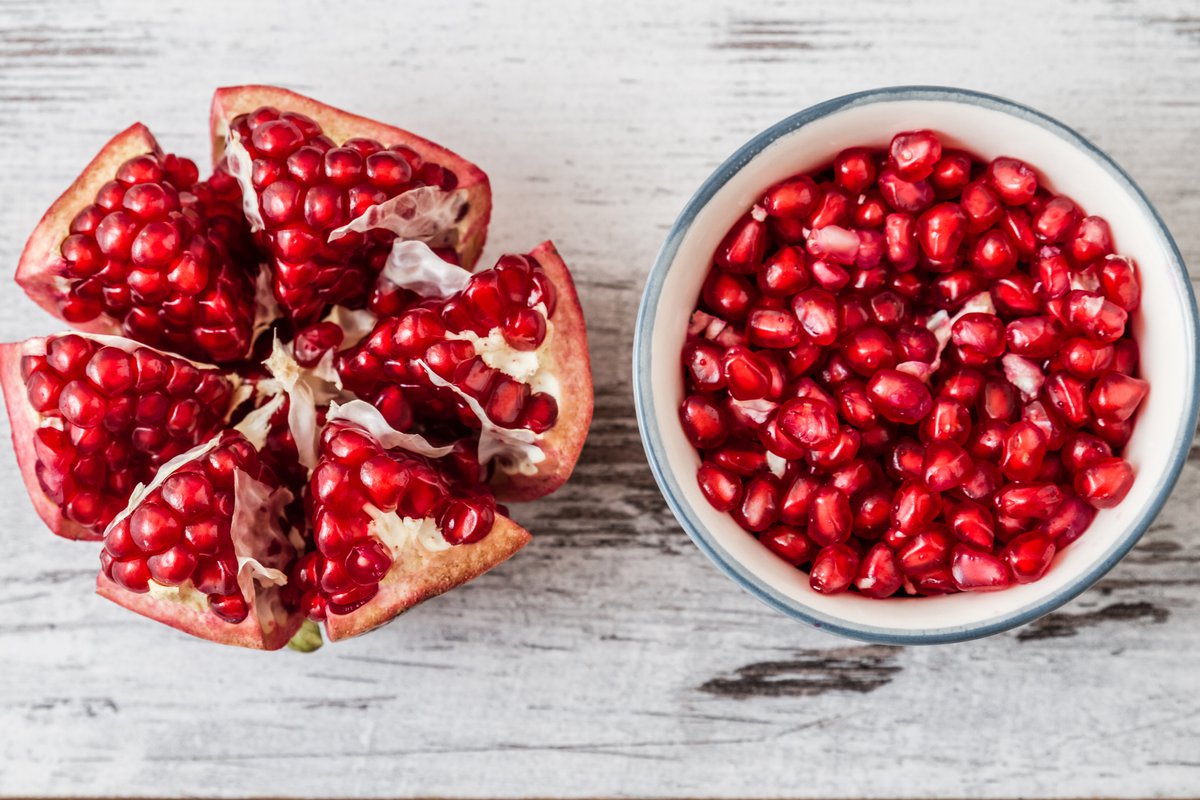
What to do with pomegranates
Eat them whole or add them to yoghurt, but this versatile fruit shouldn't be limited to breakfast. It can be a part of every meal. Proof: savoury Middle Eastern dishes such as Sawda Dajaj or Fattoush, which use pomegranate molasses, plus the seeds for garnish. Here are some ways to bring this beautiful fruit to your dinner table.
To drink
Its tangy flavour makes it an excellent addition to beverages just as much as it is in food. While a glass of pomegranate juice is an immunity-boosting tonic in itself, mix it with sparkling water, orange and lime juice to double up the vitamin C quotient.

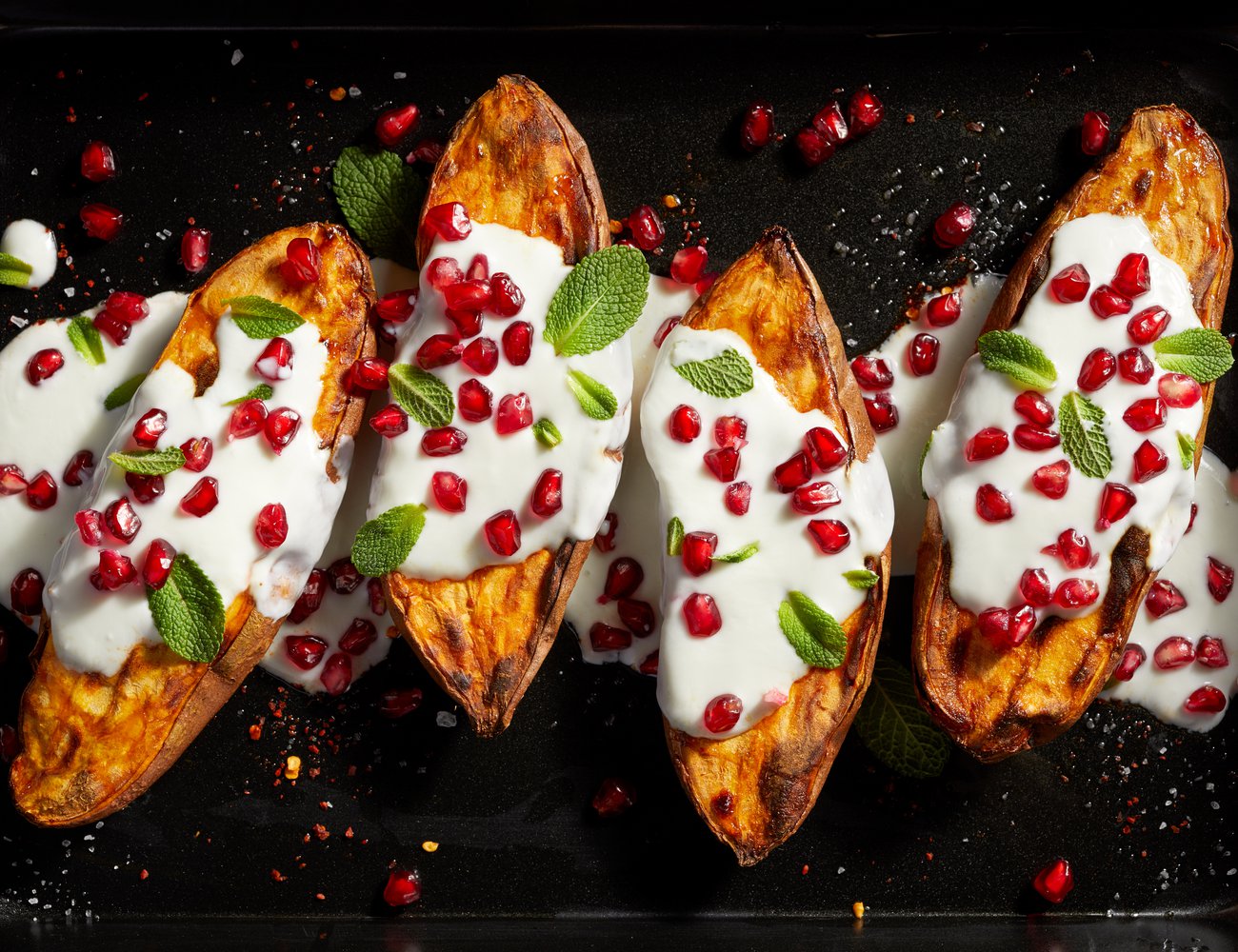
To decorate
Add sparkle (and deep flavour) to boring dishes with these small but mighty seeds. When scattered in a salad, on canapés or dessert, they add crunch as well.
To drizzle
When turned into a sauce, it adds a wealth of flavour to seafood like salmon or white meat like turkey. Pomegranate molasses – pomegranate juice, lime juice, and sugar – deliver a delicious sweet and sour touch to salads or grilled vegetables.
